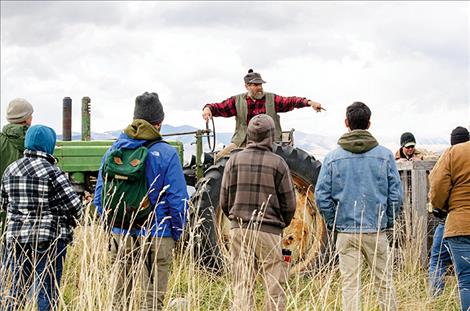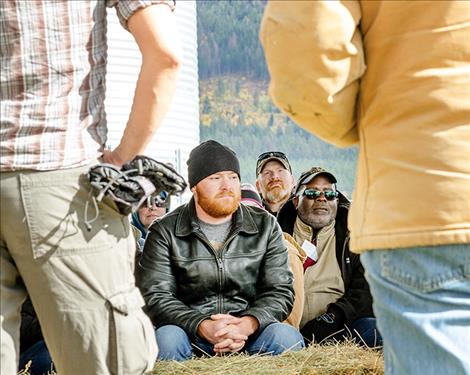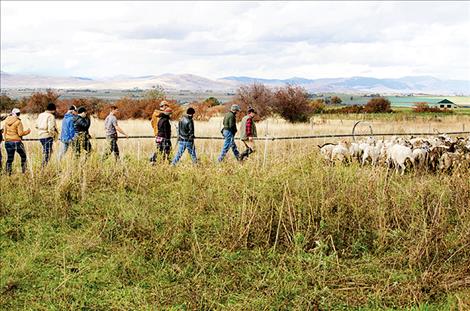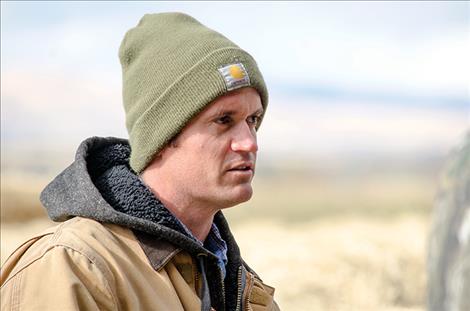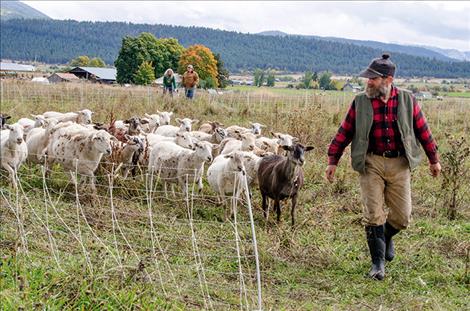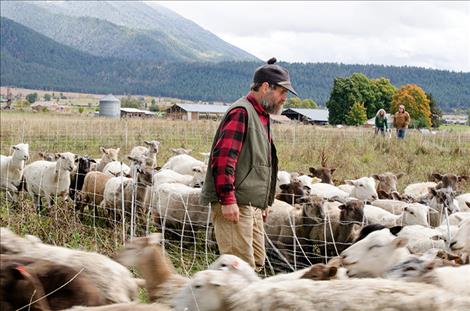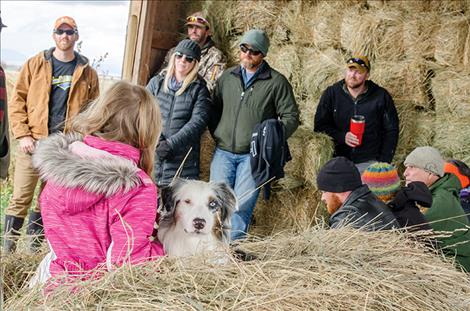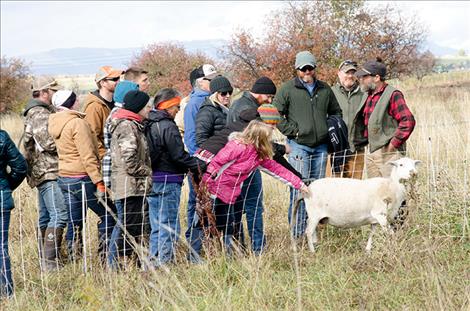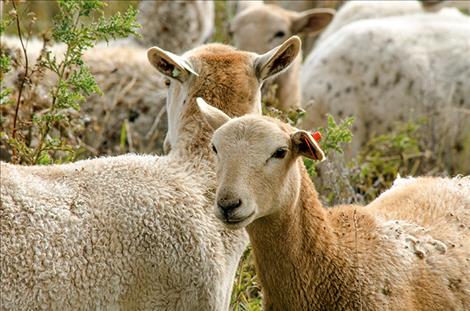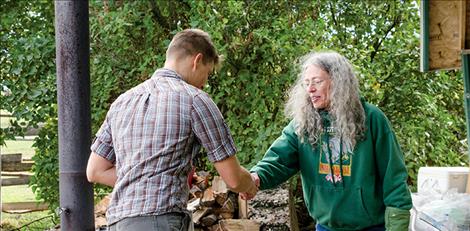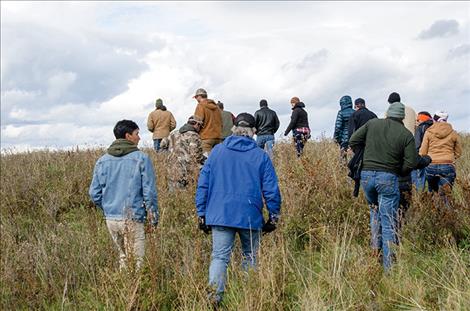‘Armed to Farm’
Farming offers therapeutic benefits for veterans, service members
Hey savvy news reader! Thanks for choosing local.
You are now reading
1 of 3 free articles.
ST. IGNATIUS – Veteran and current military members focused on a different kind of training mission as they walked through the tall grass at a farm on Foothill Road on Thursday.
The national program they were involved in, called Armed to Farm, seeks to help veterans develop or start farms through classroom work and farm-based training.
Tammy Howard, a sustainable agriculture specialist with the National Center for Appropriate Technology - host agency for the weeklong event, describes the program as “an agriculture retreat for veterans.”
“This program is training people out of the military or active military about farming,” said Tracy Mumma, who also works for NCAT.
The group toured Mumma and Dave Sturman’s farm on Thursday to see firsthand how the sheep, chickens, cows and pigs were set up. Standing near the sheep, Sturman said to the group that he knew nothing about farming when he got started. Now, he has dozens of sheep and other animals. “If I can do it, you can all do it,” he said. Although, he said as he pointed at his shedding sheep, he prefers not to shear them as the process is like doing ballet with an unwilling partner.
Army veteran Jeffery Newton of Polson, who still serves with the National Guard, said he was glad to hear Sturman’s comments. Newton said he served in Iraq and Afghanistan. He knows how to handle an Improvised Explosive Devise or as he calls them “IEDs.” He knows about organizing weapon supplies, and has dealt with rockets, but said he knows basically nothing about farming. “I’m here to learn,” he said.
He watched Sturman move the sheep from one section of the field to the next in a practice called mob rotational grazing where the animals eat down a section of ground, including the weeds, before they are moved to another section.
Newton said farming is a good occupation but it also has another benefit. “It helps us unwind after everything that we’ve seen,” he said. “Every vet in this class is a disabled veteran, and we’ve found farming to be very calming and therapeutic.”
His wife, Cora Coleman, said she found the weeklong workshop to be very helpful. She said they were learning so much – from where to find low-interest loans to setting up chickens – that she wished the class was longer.
Alton Helm is still serving in the Army. He attended the workshop to learn how to develop a piece of property in Missoula into a “farm to table” guest ranch called Victory Gardens. After serving three deployments overseas, he also said farming is relaxing. He noted that military and farming wages were pretty similar so that wouldn’t be a shock as he develops his farm. Program notes say that veterans have the unique skills and character needed to strengthen rural communities through farming.
Helm said the skill set he learned in the military was something that could help him with farming. One of the skills he has is the ability to wake up early and stay up late.
“The military cultivates the attitude that you can’t stop until the work is done,” he said. “When you are out in Iraq and focused on a mission, you keep going. If you are hurt or tired, you can’t just stop. I think that transfers to farming: we keep with the job until it’s done.”
Helm pointed out the veterans and military members taking photos of the electric fence around the sheep on Sturman’s place.
“We’ve been visiting operations like this all week, getting ideas and taking pictures,” he said. “We are asking how this is beneficial or how did you address that problem.”
He thought Sturman’s pig tractor was an especially interesting concept. Helm explained that the pig tractor is a tractor hooked to a round fence. The pigs are in the fence, and every few days, the tractor moves the fence so the pigs can get at fresh grass.
“When I get home, I’m going to start working on a design for a pig tractor,” he said.
Army Veteran Lawrence B.G Rhone traveled to the event from Flaxville, Montana. He set up a farm there where other veterans can stay and experience the benefits of farming.
“We have an environment for veterans that creates a sense of self-worth, a sense of community, and a sense of purpose,” he said. “This ‘Armed to Farm’ program is showing me how I can do more.”
He said he has met many veterans with stress-related issues and he wants to help.
“I feel an obligation to the next generation of soldiers and farming is the way I can do that,” he said.
The group toured several farms during the week and listened to speakers including Ben Montgomery with the Montana Natural Resources Conservation Service. Most of the veteran farmers are starting out with small-scale farms. He said many of the leaders pushing agriculture forward are on small farms because they often need to be innovative and develop new techniques in order to sustain their operation.
Those interested in learning more about the program can visit www.ncat.org; email tammyh@ncat.org or call 406-494-4572.















